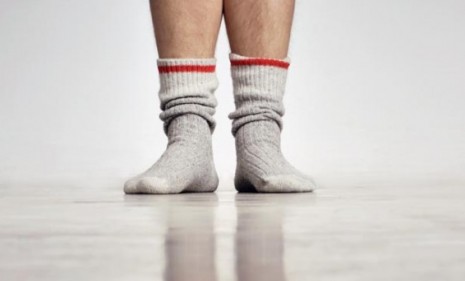Can smelly socks help kill mosquitoes?
Scientists in Tanzania have a plan to foil malaria-infected mosquitoes without fancy equipment

A free daily email with the biggest news stories of the day – and the best features from TheWeek.com
You are now subscribed
Your newsletter sign-up was successful
Malaria kills an estimated 800,000 people worldwide every year. But it might have met its match in an unlikely team that includes Bill Gates, and a whole lot of stinky feet. Here, a brief guide:
What does foot odor have to do with malaria?
People might find smelly shoes and socks disgusting, but mosquitoes find them irresistible. Studies have found that mosquitoes are attracted to dirty socks up to four times as much as they are to humans. In an experiment in three Tanzanian village where the locals get up to 350 bites a year from malaria-infected mosquitoes, scientists are going to test traps using stinky socks as bait.
The Week
Escape your echo chamber. Get the facts behind the news, plus analysis from multiple perspectives.

Sign up for The Week's Free Newsletters
From our morning news briefing to a weekly Good News Newsletter, get the best of The Week delivered directly to your inbox.
From our morning news briefing to a weekly Good News Newsletter, get the best of The Week delivered directly to your inbox.
How exactly do the traps work?
They're just wooden boxes that look like commercial beehives. The scientists plan to put smelly socks worn by adults in some. They'll also try a human-odor bait concocted by the researchers using simple chemicals, such as lactic acid, ammonia, and propionic acid, to mimic a distinctly human smell. Once the mosquitoes fly into the traps, they'll be killed using poisons, which do them in quickly, or by a fungus that infects the bugs and kills them over the course of several days. By using various formulae, the researchers will be able to tell which design catches the most bugs.
Where does Bill Gates come in?
The research team, led by entomoligist Fredros Okumu of Tanzania's Ifakara Health Institute, has won a grant from Grand Challenges Canada and the Bill & Melinda Gates Foundation to try out their contraptions. If Okumu's design works, he hopes his box-like traps can be cheaply produced all over East Africa, giving small, remote towns a way to prevent the spread of malaria using resources they already have. "It's a bold idea," says Peter A. Singer, a physician who heads Grand Challenges Canada, a government development agency. "Who would have thought there was a life-saving technology working in your laundry basket?"
A free daily email with the biggest news stories of the day – and the best features from TheWeek.com
Sources: International Business Times, Medical News Today, TIME, Wash. Post
-
 Film reviews: ‘Send Help’ and ‘Private Life’
Film reviews: ‘Send Help’ and ‘Private Life’Feature An office doormat is stranded alone with her awful boss and a frazzled therapist turns amateur murder investigator
-
 Movies to watch in February
Movies to watch in Februarythe week recommends Time travelers, multiverse hoppers and an Iraqi parable highlight this month’s offerings during the depths of winter
-
 ICE’s facial scanning is the tip of the surveillance iceberg
ICE’s facial scanning is the tip of the surveillance icebergIN THE SPOTLIGHT Federal troops are increasingly turning to high-tech tracking tools that push the boundaries of personal privacy